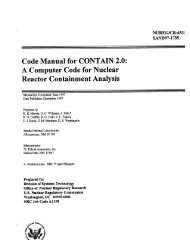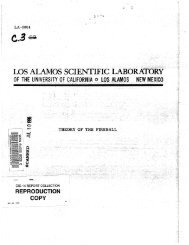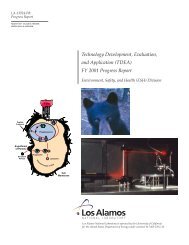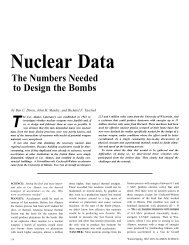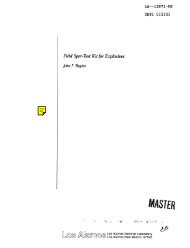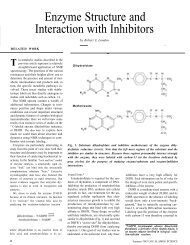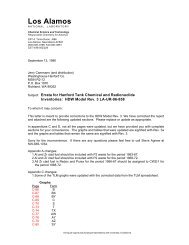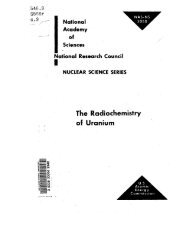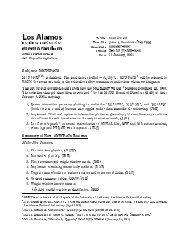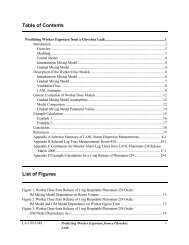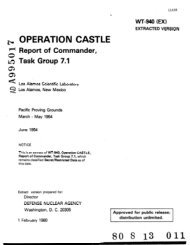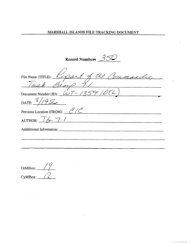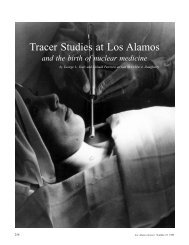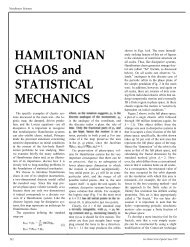A N T I M O N Y : ITS HISTORY, CHEMISTRY, MINERALOGY ...
A N T I M O N Y : ITS HISTORY, CHEMISTRY, MINERALOGY ...
A N T I M O N Y : ITS HISTORY, CHEMISTRY, MINERALOGY ...
Create successful ePaper yourself
Turn your PDF publications into a flip-book with our unique Google optimized e-Paper software.
THE METALLURGY OF ANTIMONY. 121<br />
(a) The suppression of any loss due to charging and to the<br />
activity of reaction.<br />
(b) The protection of the bed and the wall of the furnace.<br />
(c) The elimination of a great proportion of dirt and residues.<br />
(d) An increased yield of metal.<br />
The substances are mixed in the proper proportions, moulded into<br />
briquettes of a convenient size, dried, and charged into a reverberatory<br />
furnace for the production of the metal.<br />
The ingredients forming the briquettes are mixed in the following<br />
proportions by weight:—<br />
(a) Oxide of antimony, powdered . . . . 100<br />
Charcoal, powdered 15<br />
Dried carbonate of soda, powdered . . . 2<br />
Lime, powdered 2<br />
Water 15<br />
(b) Sulphide of antimony, powdered . . . . 100<br />
Iron filings or shavings 10<br />
Charcoal, powdered 20<br />
Dried carbonate of soda, powdered . . . 2<br />
Lime, powdered 2<br />
Water . 15<br />
(c) Sulphide of antimony, powdered, or oxide of antimony,<br />
powdered . . . . . . 35<br />
Anumonate of oxide of antimony . . . . 60<br />
Iron filings or shavings . . . . . . 8<br />
Charcoal 20<br />
Carbonate of soda 3<br />
Lime, powdered 2<br />
Water 15<br />
(8) The process * for the extraction of gold from antimony ore, as<br />
patented by M. Herrenschmidt, is as follows :—<br />
This process is based upon the principle that, when antimony<br />
sulphide and the metal itself are melted together, the gold<br />
contained in the sulphide passes into the metal. The direct<br />
use of the metal can be dispensed with by, for instance, melting<br />
antimony sulphide and antimony oxide together with coal. The<br />
metallic antimony formed in this reaction extracts the gold from<br />
the sulphide.<br />
A mixture is made of the antimony ore or of antimony crude<br />
with the metal or its oxide, in such proportion as will yield one-tenth<br />
of the metal in the ore as charged into a reverberatory furnace, a<br />
rotatory furnace, or a crucible. The auriferous antimony thus<br />
* French patent No. 350,013, June 23, 1904,



